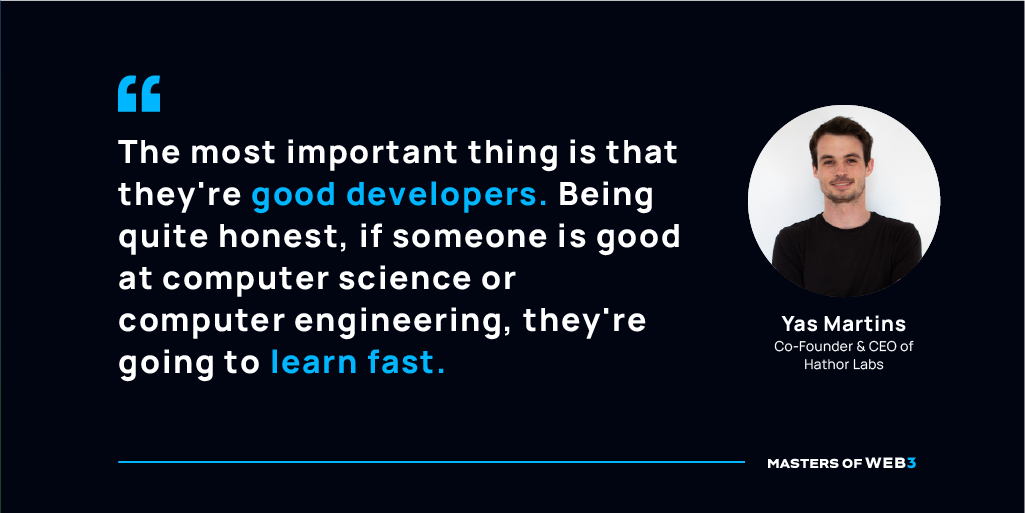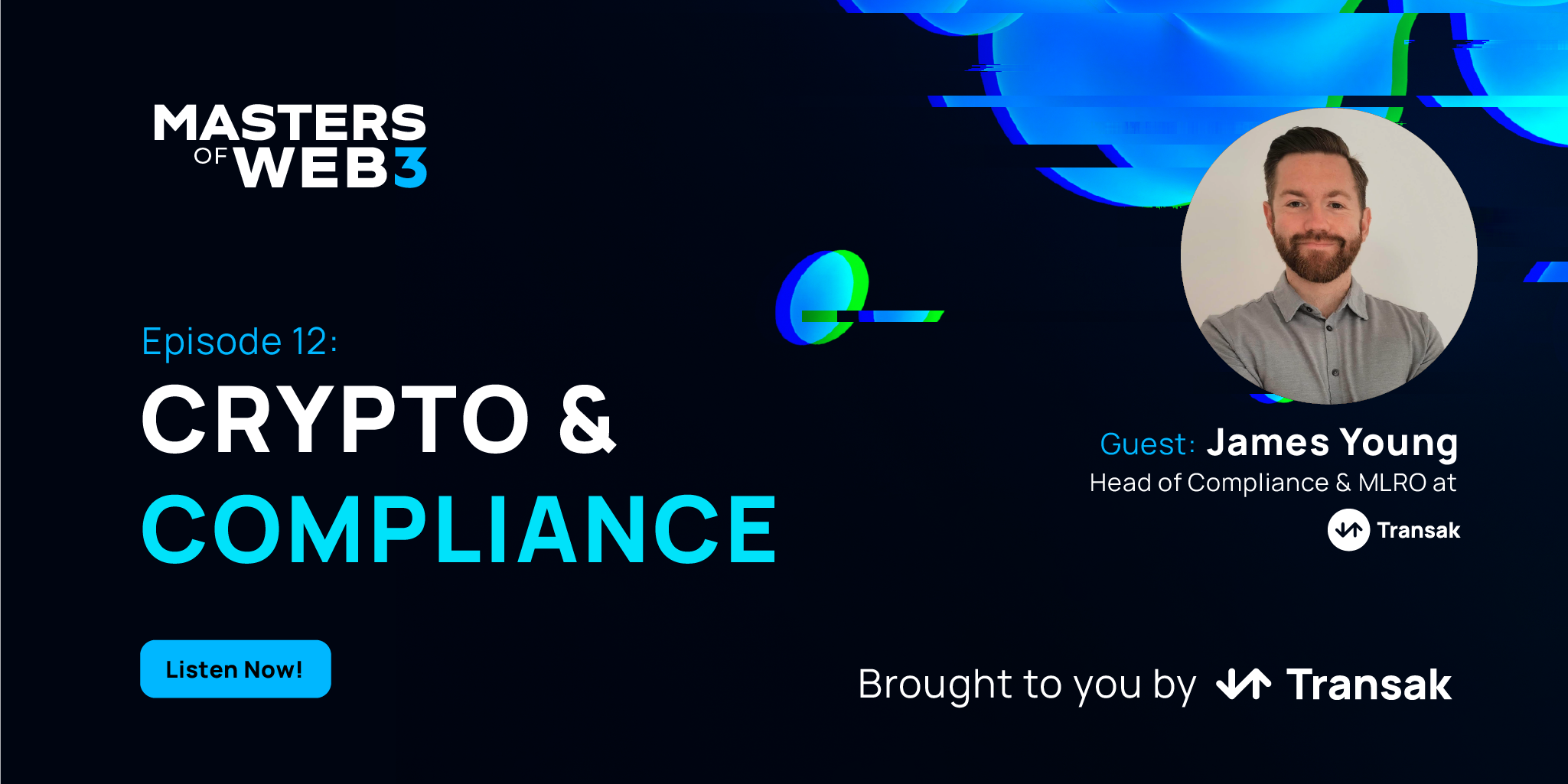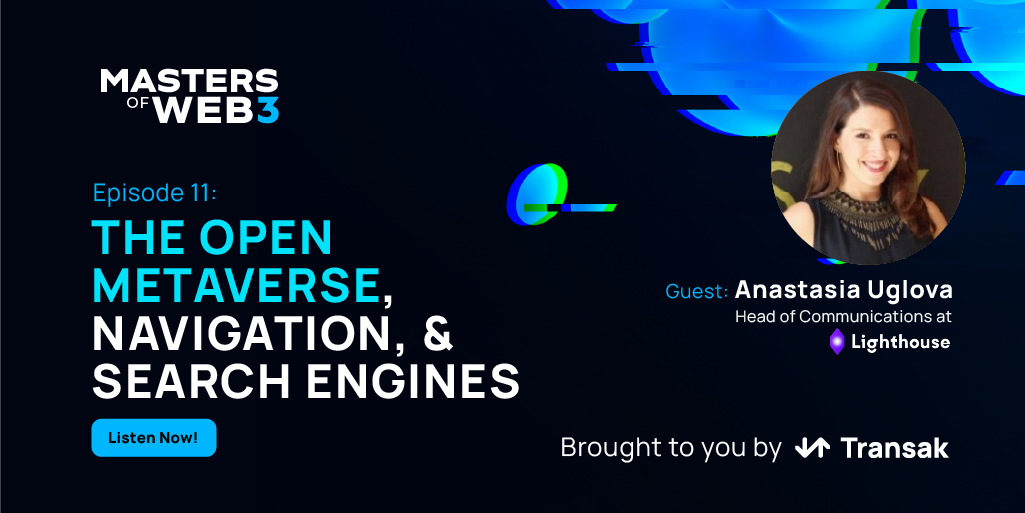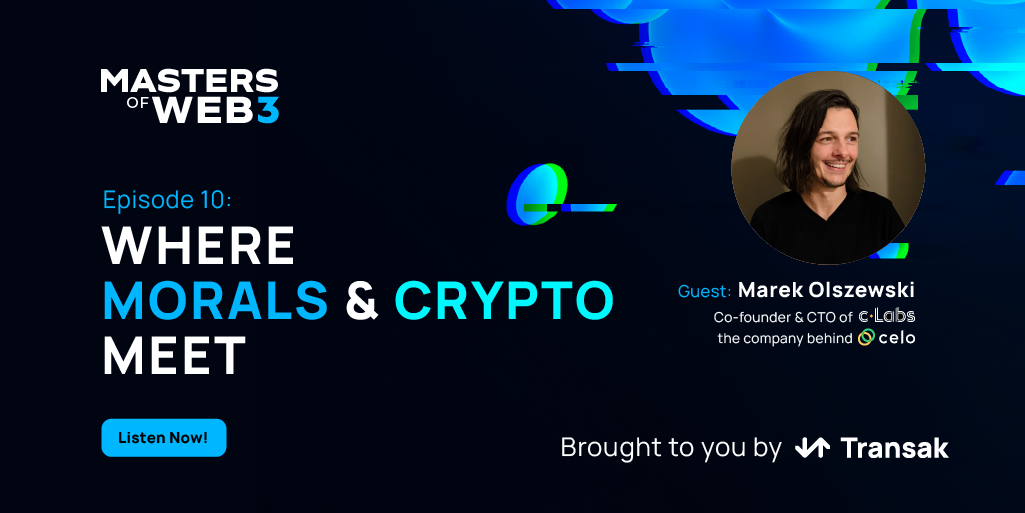The complexity of blockchain scalability is one of the biggest barriers to adoption. Yan Martins, the CEO of Hathor Labs, along with his partners, are working to solve this issue.
In this episode, Yan Martins used the experience he obtained from his previous internet startup company to properly identify issues within blockchain, assess the market, and find his niche in the web3 space with Hathor Labs.
Join us as we discuss:
- The barriers to enterprise adoption of crypto
- Network scalability vs. speed & stability
- Hiring the right developers in a competitive market
The barriers to enterprise crypto adoption

From the inception of Hathor Labs, finding real adoption from companies was something Yan wanted to fix within the industry. But when it comes to adoption barriers for crypto on-ramp, the list is long:
- Data
- Efficiency
- Scalability
- Size
- Migration
- Institutional knowledge
Out of these barriers, scalability seems to be the most sensationalized solution by companies — but tread carefully.
Network scalability vs. speed & stability
According to Yan, we can’t accept that a solution truly fixes scalability issues without proof. Think of Bitcoin: A project that can handle just seven transactions per second (TPS) on average. So, while a company boasting 100,000 to 300,000 TPS is incredibly exciting, it can only be achieved under certain conditions — one of them involving how decentralized it is.

If a project is truly decentralized, the idea of processing 100,000 transactions is in direct contrast to that.
But are people paying enough attention to notice whether a project is decentralized or not? Yan believes that people are distracted from what’s important. Instead, a lot of people focus on making money within the space without ever investigating the fundamentals of the protocols.
And it’s understandable. Blockchain technology can be complex. But without that education, entities are putting themselves at risk. Just because the price of a cryptocurrency is going up doesn’t mean that the security is there.
Combating risk
While everyone should do their due diligence to make sure the projects they invest in are truly delivering the solution that they promise, the space doesn’t come without its share of safeguards.

By its very nature, the crypto space is very open source — something that provides transparency and verifiability. In an open source environment, code can be checked by others — leading to a higher quality of code.
Hiring the right developers in a competitive market
Fortunately, Yan’s early work in home automation has informed him of where he could sit in the market and what niche he would occupy in the web3 space. Hiring engineers that are familiar with blockchain technology, however, was unfortunately much more of a challenge.
In an industry that is approximately 10 years old, finding experienced blockchain developers is nearly impossible. The solution? Finding talented engineers and training them internally instead.

The testing process
While Yan and Hathor Labs have certain qualifications that an engineer should have before bringing that candidate on, the most important factor remains their ability to learn.
Beyond the general interview questions, there’s only so much preparation before a company has to take the leap. According to Yan, the only real way to know whether a candidate will succeed within the industry is to bring them on-board and see how they perform.
This speaks to the wider concern that many crypto companies deal with — a distributed team. You can only plan so much for conflict without experiencing it first hand within the company. Giving developers the chance to argue and problem solve is just part of the scaling process.
A key takeaway
If blockchain companies want true adoption, they must be faithful to their mission to provide solutions for scalability, speed, and stability. However, as much as a team would like to provide a solution that checks every box, the reality is that it’s a balancing act.
Authenticity is key to widespread adoption.
While the open source nature of blockchain technology helps provide transparency and verifiability to the environment, it’s still in your best interest to be independently cautious. If a project can handle 100,000 TPS and also says they’re decentralized, it’s worth the time to research how true that statement really is.
Building on Hathor Network and looking to accept payments? Integrate Transak Today








